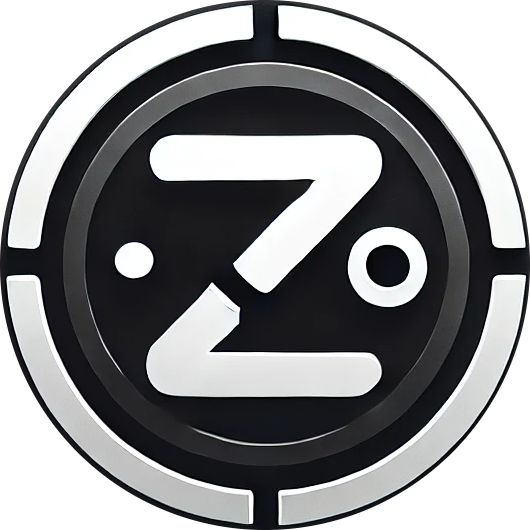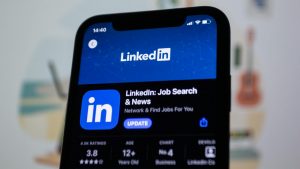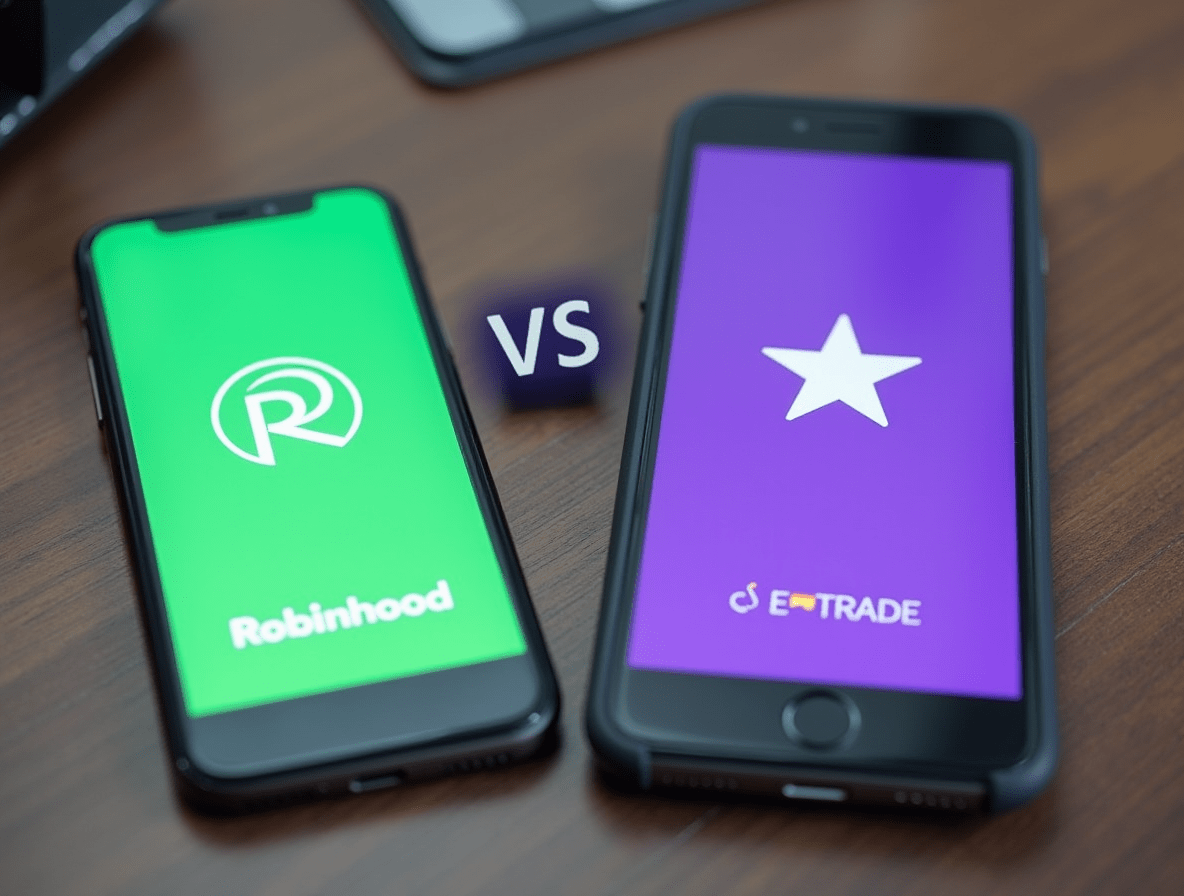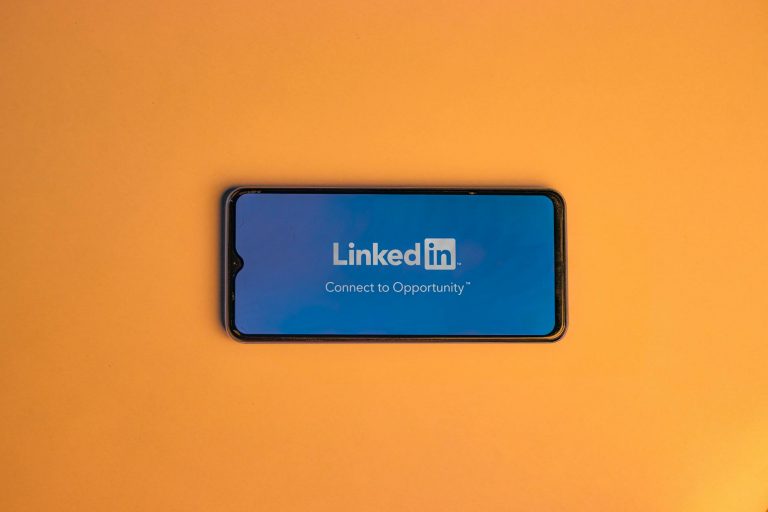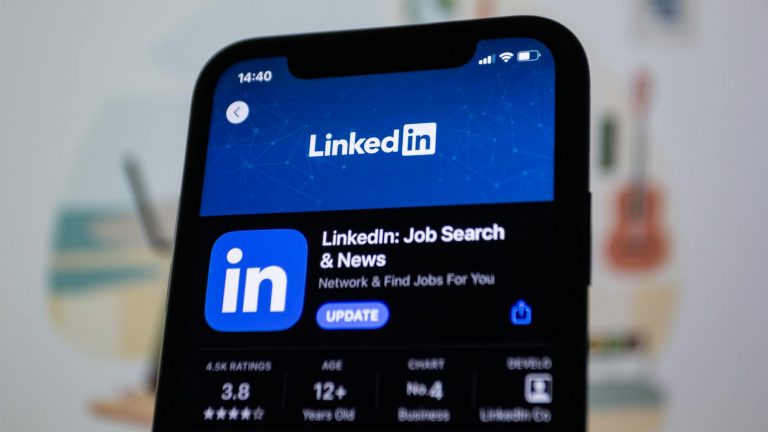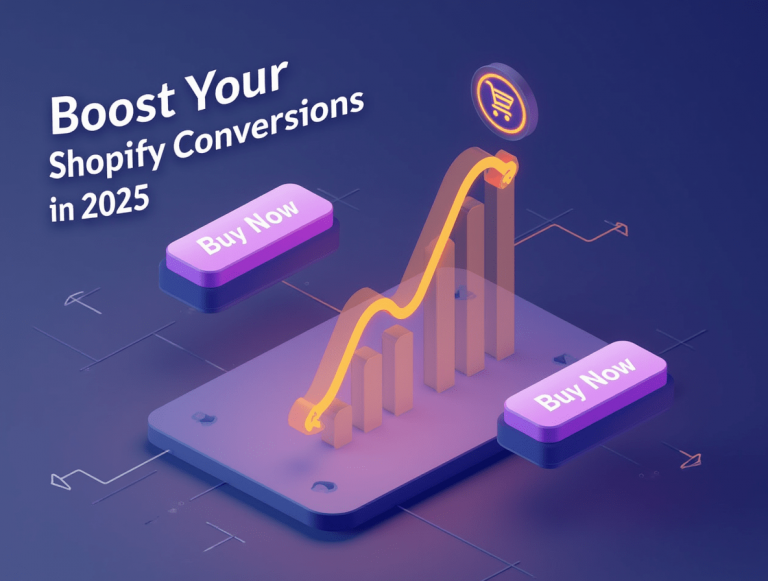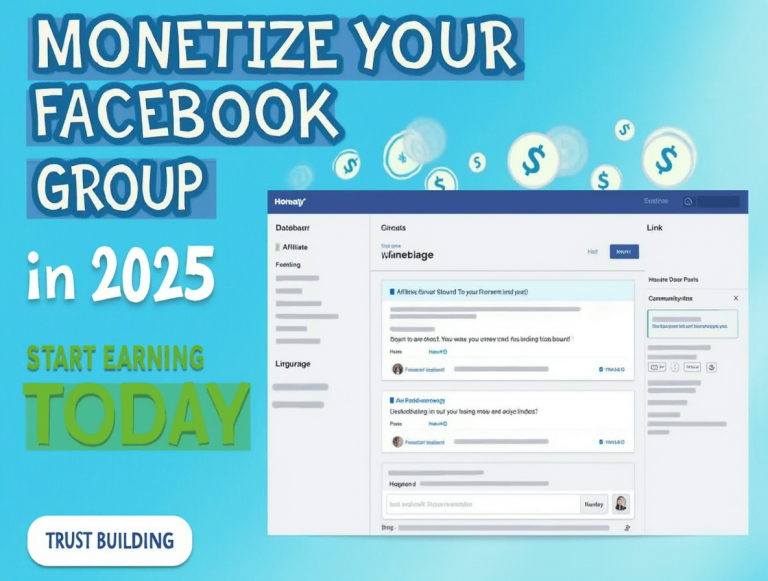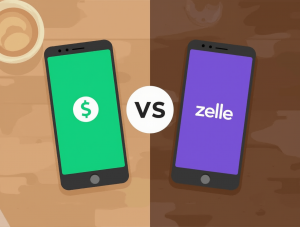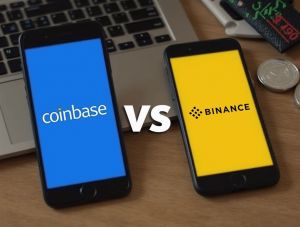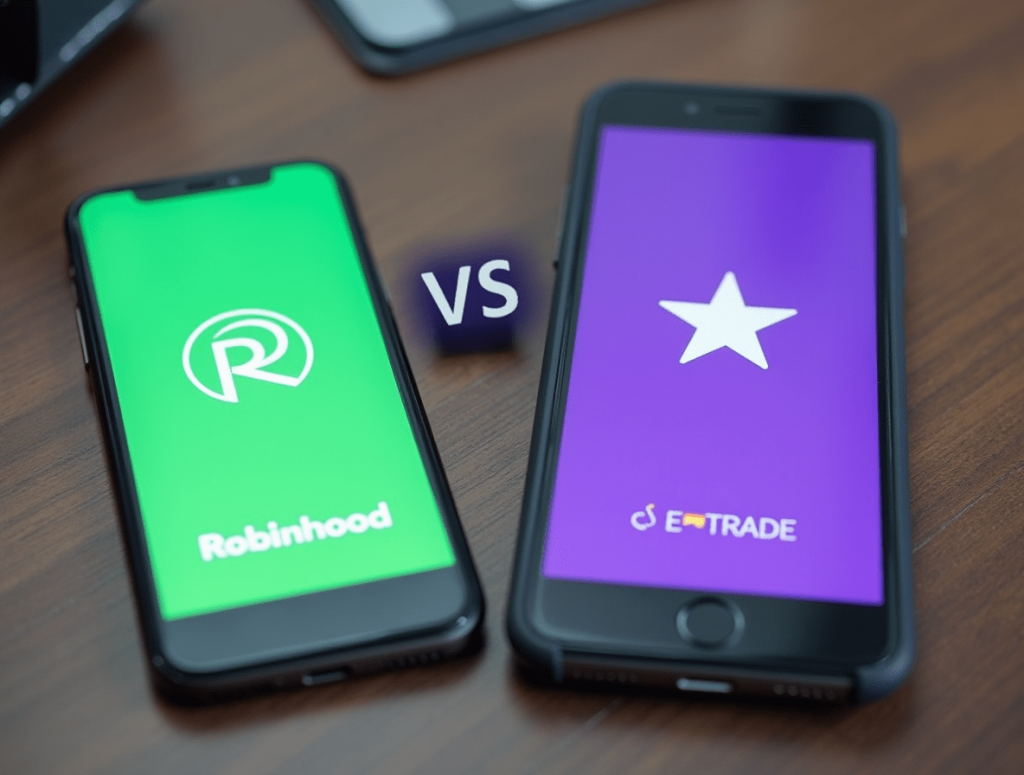
Introduction: The Evolution of Online Trading
The world of investing has undergone a remarkable transformation over the past decade. What once required phone calls to brokers and substantial commissions has evolved into seamless mobile experiences accessible to anyone with a smartphone. At the forefront of this financial democratization stand platforms like Robinhood and E*TRADE, each representing different approaches to online investing.
The choice between these platforms extends far beyond simple preference—it reflects your investing philosophy, financial goals, experience level, and the tools you value most in managing your portfolio. Robinhood pioneered commission-free trading and brought investing to a new generation with its streamlined approach, while E*TRADE represents a more established comprehensive brokerage with decades of experience and robust resources.
This comprehensive comparison will guide you through the key differences between these platforms, helping you determine which aligns best with your unique investing journey.
The Origins and Philosophy of Each Platform
Robinhood: Democratizing Finance
Robinhood emerged in 2013 with a revolutionary premise: eliminate trading commissions and make investing accessible to everyone, not just the wealthy. Founded by Vladimir Tenev and Baiju Bhatt, former Stanford classmates who previously built high-frequency trading platforms for financial institutions, Robinhood was designed as a direct challenge to traditional brokerages.
The platform’s name deliberately evokes the legendary character who took from the rich to give to the poor—in this case, taking opportunities previously reserved for Wall Street and extending them to everyday investors. This mission of financial democratization has guided Robinhood’s development, from its clean, approachable interface to its educational content framed for newcomers.
Robinhood’s approach centers on removing barriers to entry: no minimum deposit requirements, fractional shares to make expensive stocks accessible, and a mobile-first design targeting younger, tech-savvy users. This philosophy has attracted over 22 million users, many experiencing investing for the first time.
E*TRADE: The Established Innovator
E*TRADE’s story begins much earlier, in 1982, when it was founded as one of the first electronic trading platforms. The company pioneered online investing in the 1990s, executing the first-ever electronic retail trade and helping to transform how Americans invest.
Acquired by Morgan Stanley in 2020, ETRADE combines its historical commitment to innovation with the resources of a major financial institution. Unlike Robinhood’s disruptor positioning, ETRADE has evolved from an innovator to an established comprehensive brokerage, offering extensive research tools, education, retirement accounts, banking services, and professional portfolio management.
E*TRADE’s philosophy embraces both self-directed investors and those seeking guidance. The platform accommodates various investing styles, from active traders to long-term retirement planners, reflecting its broader vision of serving investors throughout their financial journey, not just their early trading experiences.
User Experience and Interface Design
The platforms take markedly different approaches to design and user experience, reflecting their target audiences and founding philosophies.
Robinhood’s Streamlined Experience
Robinhood’s interface prioritizes simplicity and accessibility:
- Minimalist Design: Clean, uncluttered screens with essential information
- Mobile-First Approach: Optimized for smartphone use with intuitive gestures
- Visual Representations: Color-coded performance indicators and simple charts
- Gamification Elements: Confetti animations for trades and waitlists for new features
- Watchlist Focus: Easy tracking of potential investments
- Discovery Sections: Curated collections of stocks based on trends and sectors
- News Integration: Basic news articles relevant to holdings
- One-Click Trading: Streamlined purchase and sale process
Robinhood’s interface deliberately minimizes complexity, focusing on key data points and actions rather than comprehensive analysis tools. This approach creates a welcoming environment for beginners but may feel limiting to experienced investors seeking deeper insights.
E*TRADE’s Comprehensive Platform
E*TRADE offers a more feature-rich experience with multiple platform options:
- Tiered Platform Options:
- E*TRADE Web (standard platform)
- Power E*TRADE (advanced trading features)
- E*TRADE Pro (professional-level desktop platform)
- Customizable Dashboards: Ability to arrange and prioritize information
- Advanced Charting: Multiple timeframes and technical indicators
- Screeners and Filters: Sophisticated stock, ETF, and options screening tools
- Portfolio Analysis: Performance tracking and risk assessment tools
- Strategy Builders: Options strategy visualization and testing
- Research Integration: Analyst reports and ratings directly in the platform
- Educational Overlays: Contextual learning resources
E*TRADE’s multi-platform approach allows users to match their experience to their expertise level, from straightforward to highly technical. This flexibility serves a broader range of investors but may initially feel overwhelming to novices.
Investment Options and Asset Classes
The breadth of available investments significantly differentiates these platforms, affecting the diversity and sophistication of portfolios you can build.
Robinhood’s Available Investments
Robinhood offers a growing but still limited selection:
- Stocks: U.S. exchange-listed securities
- ETFs: Exchange-traded funds across various sectors
- Options: Basic options trading with limited strategies
- Cryptocurrency: Direct purchase of select cryptocurrencies
- Fractional Shares: Partial ownership of expensive stocks
- IPO Access: Participation in select initial public offerings
- ADRs: Some American Depositary Receipts for international exposure
- Recurring Investments: Automated regular purchases
Notably absent from Robinhood are mutual funds, bonds, futures, forex, and the full range of options strategies available on more comprehensive platforms. These limitations reflect Robinhood’s focus on simplicity and the most popular investment types for its target demographic.
E*TRADE’s Investment Universe
E*TRADE provides access to a much wider range of investment vehicles:
- Stocks: Domestic and international equities
- ETFs: Comprehensive ETF marketplace with screening tools
- Mutual Funds: Over 4,400 no-load, no-transaction-fee mutual funds
- Options: Advanced options strategies with dedicated analytics
- Bonds: Corporate, municipal, treasury, and other fixed-income securities
- Futures: Commodities and financial futures contracts
- Forex: Foreign currency trading through specialized platform
- IPOs: Access to initial public offerings
- Fractional Shares: Recently added capability
- Cryptocurrency: More limited than Robinhood, primarily through trusts/ETFs
- Robo-Advisor: Automated portfolio management (Core Portfolios)
E*TRADE’s comprehensive offering allows for more sophisticated portfolio construction, diversification across asset classes, and specialized strategies beyond stock picking. This breadth makes it suitable for investors with more complex needs or those who anticipate their investing approach evolving over time.
Fee Structures and Costs
While commission-free trading has become industry standard, important cost differences remain between the platforms.
Robinhood’s Fee Structure
Robinhood pioneered the commission-free model with a streamlined fee approach:
- Stock/ETF Trades: $0 commission
- Options Contracts: $0 per contract
- Cryptocurrency Trading: No direct commission (spread-based pricing)
- Account Minimums: No minimum to open an account
- Margin Rates: Starting around 5.75% for Robinhood Gold subscribers
- Robinhood Gold: $5 monthly subscription for premium features
- Wire Transfers: $25 for domestic, $50 for international
- Paper Statements: $5 per statement
- Foreign Transaction Fees: Up to 1% on certain ADR transactions
- Transfer Out Fee: $75 for full account transfers
Robinhood’s revenue model relies heavily on payment for order flow (PFOF), where it receives compensation for directing orders to specific market makers. This practice has drawn criticism regarding potential conflicts of interest that might affect execution quality.
E*TRADE’s Fee Structure
E*TRADE offers a more traditional but competitive fee structure:
- Stock/ETF Trades: $0 commission
- Options Contracts: $0.65 per contract ($0.50 with 30+ trades per quarter)
- Mutual Funds: $0 for no-load, no-transaction-fee funds; $19.99 for others
- Bonds: $1 per bond (minimum $10, maximum $250)
- Futures: $1.50 per contract, per side
- Account Minimums: No minimum for brokerage accounts; $500 for Core Portfolios
- Margin Rates: Starting around 8.95% (tiered by balance)
- Robo-Advisory Fee: 0.30% for Core Portfolios automated investing
- Foreign Stocks: Varies by market
- Wire Transfers: $25 domestic, $40+ international
- Account Maintenance: No annual or inactivity fees
- Transfer Out Fee: $75 for full account transfers
E*TRADE’s fee structure reflects its broader service offering, with competitive rates that become more advantageous for active traders and those utilizing specialized investments beyond stocks and ETFs.
Account Types and Financial Planning
The range of available account types significantly impacts long-term financial planning capabilities.
Robinhood’s Account Offerings
Robinhood provides a limited selection of account types:
- Individual Taxable Brokerage: Standard investment account
- Robinhood Cash: Non-margin account
- Robinhood Instant: Default account with instant deposit access
- Robinhood Gold: Premium subscription with larger instant deposits and margin
- Traditional IRA: Recently added retirement account option
- Roth IRA: Recently added retirement account option
- Cash Management: High-yield cash account with debit card
- Joint Accounts: Not currently available
- Trust Accounts: Not currently available
- Business Accounts: Not currently available
Robinhood’s account selection has historically been limited primarily to individual taxable accounts, though the recent addition of retirement accounts represents a significant expansion. The platform still lacks specialized accounts for many common scenarios like joint ownership, trusts, and education savings.
E*TRADE’s Account Ecosystem
E*TRADE offers a comprehensive range of account types:
- Individual Brokerage: Standard investment account
- Joint Accounts: Multiple ownership options
- Traditional IRA: Tax-deferred retirement account
- Roth IRA: Tax-free growth retirement account
- Rollover IRA: For transferring employer plans
- SEP IRA: For self-employed individuals
- SIMPLE IRA: Small business retirement plans
- Solo 401(k): For self-employed with no employees
- Custodial Accounts: UGMA/UTMA for minors
- Education Accounts: 529 plans and Coverdell ESAs
- Trust Accounts: Various trust structures supported
- E*TRADE Bank: Integrated banking services
- Managed Portfolios: Professional management options
- Corporate/Business Accounts: For business investing
This extensive account lineup enables comprehensive financial planning across life stages and situations, from early career investing to retirement planning, estate management, and business needs.
Research, Education, and Analysis Tools
The resources available to inform investment decisions vary dramatically between the platforms.
Robinhood’s Resources
Robinhood offers basic educational content and limited research:
- Snacks Newsletter: Daily digestible market news
- Basic Company Information: Earnings data, analyst ratings, company profiles
- Limited Analyst Ratings: Basic consensus ratings
- Customized News Feed: News related to watchlist and holdings
- Basic Charts: Simple price charts with limited indicators
- Top Lists: Popular stocks and basic categorization
- Learn Section: Growing library of investment education articles
- No Screeners: Limited discovery tools beyond curated lists
- No Third-Party Research: No integrated external analysis
- Limited Technical Analysis: Basic charting without advanced tools
Robinhood’s research tools align with its minimalist approach, providing essential information while avoiding potential information overload for newer investors. The platform focuses on accessibility rather than depth of analysis.
E*TRADE’s Research Suite
E*TRADE provides comprehensive research and analysis tools:
- Third-Party Research: Reports from multiple independent sources
- Stock Screeners: Sophisticated screening with numerous parameters
- Advanced Charting: Technical analysis with over 100 studies
- Options Analysis: Dedicated tools for options strategy evaluation
- Risk Analysis: Portfolio risk assessment tools
- Market Commentary: Professional market insights
- Economic Research: Economic indicators and analysis
- Ratings Visualization: Analyst ratings with trend indicators
- Knowledge Center: Extensive educational library
- Thematic Investing: Idea generation tools
- Paper Trading: Risk-free practice environment
- Webinars and Events: Live educational sessions
E*TRADE’s research offerings compare favorably with traditional full-service brokerages, providing institutional-quality resources integrated directly into the trading platforms. These tools enable data-driven investment decisions based on multiple perspectives and analytical frameworks.
Mobile Experience and Accessibility
Mobile capabilities have become essential for modern investors who expect to manage their portfolios on the go.
Robinhood’s Mobile-First Approach
Robinhood was designed primarily as a mobile experience:
- Design Philosophy: Mobile as primary platform, not secondary
- User Interface: Intuitive swipe-based navigation
- Biometric Security: Face ID/Touch ID integration
- Push Notifications: Customizable alerts for price movements
- Widget Support: Homescreen portfolio widgets
- Watchlist Management: Easy tracking of potential investments
- Trade Execution: Complete trading functionality
- News Integration: Basic news feed within the app
- Limited Multitasking: Focused single-task design
- Consistency: Nearly identical experience across devices
Robinhood’s mobile app represents the complete platform experience rather than a scaled-down version, reflecting its target demographic’s preference for smartphone-based financial management.
E*TRADE’s Mobile Suite
E*TRADE offers robust mobile apps that complement its desktop platforms:
- Multiple Apps:
- Standard E*TRADE mobile app
- Power E*TRADE specialized app for active traders
- Cross-Device Synchronization: Seamless transition between platforms
- Advanced Mobile Charting: Technical analysis on the go
- Multiple Order Types: Complex orders from mobile devices
- Portfolio Analysis: Performance tracking and allocation views
- Account Management: Complete account administration functions
- Banking Integration: E*TRADE banking features accessible
- Document Access: Statements and tax documents
- Educational Content: Learning resources within the app
- Bloomberg TV: Streaming financial news
E*TRADE’s mobile approach aims to provide near-desktop functionality in a mobile format, allowing more complex trading and analysis from mobile devices while maintaining the primary experience on larger screens for detailed work.
Customer Support and Service
Access to assistance and guidance varies significantly between the platforms, reflecting their different business models and target users.
Robinhood’s Support Structure
Robinhood has traditionally offered limited customer service:
- Email Support: Primary contact method
- Help Center: Self-service knowledge base
- Limited Phone Support: Recently expanded but still restricted
- No Branch Locations: Entirely digital experience
- No Live Chat: Limited real-time assistance options
- Community Forum: Peer discussions and support
- Social Media Responses: Support through Twitter and other channels
- Response Time: Historically variable, with improvements ongoing
- Educational Content: Basic learning resources
Robinhood’s customer support model reflects its lean operational approach, prioritizing scalable digital solutions over traditional high-touch service. After facing criticism for limited support during market volatility, the company has been expanding these capabilities.
E*TRADE’s Support Options
E*TRADE provides comprehensive support across multiple channels:
- 24/7 Phone Support: Around-the-clock assistance
- Live Chat: Real-time text-based help
- Email Support: Detailed written assistance
- Physical Branches: 30 financial centers nationwide
- Online Knowledge Base: Extensive self-help resources
- Scheduled Callbacks: Arrange specific call times
- Professional Guidance: Access to financial consultants
- Active Community: User forums and discussions
- Webinars and Events: Educational sessions with live Q&A
- Social Media Team: Support through various platforms
E*TRADE’s multi-channel support system offers significantly more options for receiving assistance, from self-service to face-to-face consultations, reflecting its positioning as a full-service brokerage rather than merely a trading app.
Specialized Features and Unique Offerings
Beyond core trading functions, each platform offers distinctive features that may influence your decision.
Robinhood’s Unique Features
Robinhood differentiates itself with several special offerings:
- Cash Card: Debit card with customizable rewards and round-ups
- IPO Access: Participation in select initial public offerings
- Direct Cryptocurrency Trading: Own actual crypto assets directly
- Fractional Share Automation: Recurring investments in dollar amounts
- Simplified Options Trading: Accessible options interface for beginners
- Instant Deposit Access: Immediate use of deposited funds (limits apply)
- Cash Management: High-yield cash account integrated with investing
- Rewards Program: Stock rewards for debit card usage and referrals
- Early Direct Deposit: Access paychecks up to two days early
- Recurring Investments: Automated regular purchases
Robinhood’s specialties focus on accessibility, immediacy, and features appealing to younger investors managing smaller portfolios who value integration with their daily financial lives.
E*TRADE’s Specialized Offerings
E*TRADE provides several distinctive capabilities:
- Core Portfolios: Automated investment management (robo-advisor)
- Prebuilt Portfolios: Expert-curated investment collections
- Active Trading Platform: Power E*TRADE specialized interface
- Options Strategy Scanner: Identify potential options strategies
- Risk/Reward Analysis: Visual probability analysis for options
- Tax-Loss Harvesting: Tax-efficient investment management
- Banking Integration: Checking, savings, and loans
- Derivatives Trading: Futures and sophisticated options strategies
- Third-Party Research: Independent analysis from multiple sources
- Specialized Retirement Planning: Advanced retirement tools and calculators
E*TRADE’s unique features tend toward sophistication, analysis, and long-term planning, reflecting its positioning for investors with more complex needs and larger portfolios.
Security and Account Protection
Investor protection varies in important ways between the platforms, though both offer essential safeguards.
Robinhood’s Security Measures
Robinhood implements several security features:
- SIPC Protection: Securities protected up to $500,000 (including $250,000 cash)
- Encryption: Data encryption both in transit and at rest
- Two-Factor Authentication: Additional login verification
- Biometric Security: Fingerprint or facial recognition access
- Device Management: Track and control authorized devices
- Fraud Monitoring: Systems to detect suspicious activity
- Insurance Coverage: Additional insurance beyond SIPC limits
- Regulatory Compliance: SEC and FINRA oversight
- Cash Sweep Program: Bank-level FDIC insurance for cash holdings
- Privacy Controls: Data sharing preferences management
Despite these protections, Robinhood has faced criticism during periods of extreme market volatility, particularly regarding platform stability and trading restrictions during high-volume events.
E*TRADE’s Security Framework
E*TRADE offers comprehensive security protections:
- SIPC Coverage: Standard securities protection up to $500,000
- Additional Insurance: Supplemental coverage up to $1 million cash
- Complete Security Suite: Comprehensive encryption and monitoring
- Fraud Detection Systems: Advanced algorithms for unusual activity
- Dedicated Security Team: Specialized cybersecurity professionals
- Security Dashboards: Transparency into account safety
- Risk Management Tools: Customizable alerts and controls
- Bank-Level Authentication: Multi-factor verification procedures
- Regulatory Oversight: SEC, FINRA, and banking regulators
- Identity Verification: Stringent account opening procedures
- FDIC Insurance: Bank product protection up to $1.25 million
E*TRADE’s decades of experience in online financial services have contributed to a mature security framework with multiple layers of protection and oversight.
Target User and Best Fit Scenarios
Understanding which type of investor each platform best serves can help determine your optimal choice.
Robinhood’s Ideal User
Robinhood typically works best for:
- First-Time Investors: Those new to the markets seeking simplicity
- Young Adults: Digitally native users comfortable with mobile-first experiences
- Small Portfolio Managers: Those investing modest amounts initially
- Cryptocurrency Enthusiasts: Users interested in direct crypto ownership
- Fee-Sensitive Investors: Those particularly concerned about minimizing costs
- Self-Directed Learners: People who prefer learning through direct experience
- Fractional Share Buyers: Investors wanting to purchase partial shares of expensive stocks
- Regular Small Investors: Those making frequent small-dollar investments
- Mobile-Preferring Users: Investors who primarily manage finances via smartphone
- Streamlined Experience Seekers: Those who value simplicity over comprehensive tools
Robinhood offers the most value to investors who prioritize accessibility, simplicity, and cost minimization, particularly those earlier in their investing journey who appreciate a streamlined mobile experience.
E*TRADE’s Ideal User
E*TRADE better serves:
- Experienced Investors: Those with market knowledge seeking advanced tools
- Active Traders: Frequent traders utilizing technical analysis
- Retirement Planners: Investors focused on long-term retirement strategies
- Research-Driven Investors: Those making decisions based on in-depth analysis
- Options Strategists: Traders implementing complex options positions
- Life-Stage Planners: Investors managing accounts for various financial goals
- Financial Consolidators: Those seeking to unify investments and banking
- Education Savers: Parents and grandparents funding education accounts
- Business Owners: Self-employed individuals and small business retirement plans
- Multi-Account Holders: Investors managing various account types simultaneously
E*TRADE provides the most benefit to investors seeking comprehensive tools, diverse account types, and extensive research to support more sophisticated investment strategies across multiple life stages.
Recent Developments and Future Trajectory
Both platforms continue to evolve, with recent changes potentially affecting their suitability for different investors.
Robinhood’s Recent Evolution
Robinhood has undertaken several significant developments:
- Retirement Accounts: Introduction of Traditional and Roth IRAs
- Expanded Customer Service: Addition of phone support options
- Enhanced Educational Content: Growth of learning resources
- Cash Card Launch: Debit card with customizable rewards
- Advanced Charts: Improved technical analysis tools
- IPO Access Expansion: More offerings for retail participation
- 24/7 Trading: Extended hours for cryptocurrency
- Recurring Investments: Automated regular purchases
- Regulatory Challenges: Ongoing scrutiny from regulators
- International Expansion: Cautious growth beyond U.S. markets
These developments suggest Robinhood is working to address criticisms about limited account types and functionality while maintaining its core identity as an accessible platform for newer investors.
E*TRADE’s Current Direction
E*TRADE has seen several important changes:
- Morgan Stanley Acquisition: Integration with wealth management giant
- Fee Reductions: Elimination of commissions on most trades
- Enhanced Mobile Experience: Continued improvement of apps
- Expanded Banking Services: Additional financial products
- Fractional Shares: Addition of partial share investing
- Thematic Investing Tools: Content around investment themes
- ESG (Environmental, Social, Governance) Focus: Sustainable investing options
- Robo-Advisory Enhancement: Improvements to Core Portfolios
- Premium Service Tiers: Financial advisor access and personalized guidance
- Digital Experience Refinement: Streamlined interfaces across platforms
Following its acquisition by Morgan Stanley, E*TRADE appears to be positioning itself as a bridge between self-directed investing and wealth management services, maintaining its technological edge while leveraging its parent company’s resources.
Making Your Decision: Key Considerations
When determining which platform better suits your needs, consider these essential factors:
Factors Favoring Robinhood
Robinhood may be your better choice if:
- You’re new to investing and want the simplest possible start
- You prefer managing investments exclusively through a smartphone
- You’re starting with a relatively small amount to invest
- You want to purchase fractional shares with small dollar amounts
- You’re interested in cryptocurrency ownership alongside stocks
- You value a clean, uncluttered interface with minimal complexity
- You plan to make regular small investments automatically
- You want a unified experience for daily spending and investing
- You don’t need retirement accounts beyond basic IRAs
- You learn best through direct experience rather than formal education
Factors Favoring E*TRADE
E*TRADE likely offers more value if:
- You have investment experience and want sophisticated tools
- You need access to a full range of investment types
- You want comprehensive research and analysis resources
- You require multiple account types for different financial goals
- You trade options with complex strategies
- You plan to actively manage retirement savings across account types
- You value having access to human guidance when needed
- You prefer having banking services integrated with investments
- You anticipate your investing approach becoming more complex over time
- You rely on thorough education before making investment decisions
Potential Hybrid Approach
Some investors may benefit from using both platforms strategically:
- Use Robinhood for simple stock purchases and cryptocurrency
- Use E*TRADE for retirement accounts and more complex investments
- Test trading strategies on E*TRADE’s robust platforms
- Execute simple trades through Robinhood’s streamlined interface
- Take advantage of E*TRADE’s educational resources
- Enjoy Robinhood’s user-friendly mobile experience
- Keep long-term investments in E*TRADE’s diverse account types
- Use Robinhood for fractional share investing in expensive stocks
- Leverage E*TRADE for family financial planning
- Maintain Robinhood for its integration with daily financial life
Conclusion: Matching the Platform to Your Investment Journey
The choice between Robinhood and E*TRADE ultimately reflects your personal investment philosophy, experience level, and financial goals. Neither platform represents the universally “better” choice—each excels for specific types of investors at particular stages of their financial journey.
Robinhood’s streamlined approach, commission-free model, and accessibility make it an excellent entry point for newer investors exploring the markets for the first time. Its mobile-first design and fractional shares democratize investing in meaningful ways, allowing even those with modest resources to begin building portfolios.
E*TRADE’s comprehensive platform, extensive research, diverse account types, and robust support make it ideal for investors with more complex needs or those planning across multiple financial goals and life stages. Its integration with Morgan Stanley adds additional dimensions of wealth management potential for growing portfolios.
Many investors find their needs evolving over time, often starting with simpler platforms like Robinhood before expanding to more comprehensive services like E*TRADE as their portfolios grow and their strategies become more sophisticated. Understanding each platform’s strengths and limitations allows you to choose the solution—or combination of solutions—that best supports your unique investment journey.
Frequently Asked Questions
Can I transfer my investments between these platforms?
Yes, you can transfer securities between Robinhood and E*TRADE through the standard ACAT (Automated Customer Account Transfer) process. Both platforms typically charge a fee for outgoing transfers ($75), though receiving institutions sometimes reimburse this cost for larger accounts.
Do both platforms offer fractional shares?
Yes, both Robinhood and E*TRADE now offer fractional share investing, allowing you to purchase portions of stocks with dollar amounts rather than requiring full share purchases.
Which platform has better cryptocurrency offerings?
Robinhood generally offers a more direct cryptocurrency experience, allowing ownership of actual crypto assets. E*TRADE’s cryptocurrency exposure is more limited, primarily through trusts, ETFs, and futures rather than direct ownership.
Can I open retirement accounts on both platforms?
Both platforms now offer retirement accounts, though ETRADE provides a much wider range of options. Robinhood recently added Traditional and Roth IRAs, while ETRADE offers these plus SEP IRAs, SIMPLE IRAs, Solo 401(k)s, and rollover options.
Which platform is better for beginners?
Robinhood typically provides a more accessible entry point for complete beginners due to its simplified interface, educational approach, and straightforward account opening. E*TRADE offers more comprehensive education but with a steeper learning curve.
Can I trade options on both platforms?
Yes, both platforms support options trading, but with significant differences. Robinhood offers basic options strategies with a simplified interface, while E*TRADE provides advanced options tools, analytics, and strategy capabilities better suited for experienced options traders.
Which platform has better research tools?
E*TRADE offers significantly more robust research resources, including third-party analysis, screening tools, and technical indicators. Robinhood provides basic company information and limited analysis suitable for simpler investment approaches.
How do the platforms compare for long-term investing?
E*TRADE generally offers better tools for long-term investing through its diverse account types, retirement planning resources, and portfolio analysis capabilities. Robinhood has improved its long-term offerings with the addition of retirement accounts but remains more limited in comprehensive planning tools.
